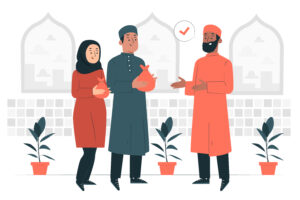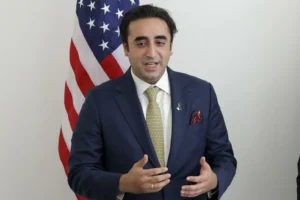India is a land of diverse cultures, religions, and traditions, where faith-based initiatives play a vital role in community development. Among these, Islamic NGOs in India stand out as vital forces of social upliftment, providing everything from education and legal aid to disaster relief and healthcare. These organizations work tirelessly to empower disadvantaged sections of society while preserving religious identity and moral values.
One of the cornerstones of their contribution is Madrasah education, a centuries-old system that offers both religious and secular learning. In this blog post, we explore the role of Islamic NGOs—focusing on the influential Jamiat Ulama-i-Hind—and how institutions like madrasahs are evolving to meet the needs of a modern, educated, and equitable society. We’ll examine their objectives, challenges, and their pivotal place in India’s socio-religious fabric.
1. What Is an Islamic NGO and Why Is It Important?
An Islamic NGO (Non-Governmental Organization) is a faith-based organization rooted in Islamic principles that focuses on humanitarian, educational, and developmental services. These organizations operate under the moral obligation of Zakat (charity), Sadaqah (voluntary giving), and Khidmat-e-Khalq (service to humanity).
Islamic NGOs in India like Jamiat Ulama-i-Hind have been instrumental in:
- Offering financial aid and scholarships
- Running healthcare and relief missions
- Providing legal support for social justice
- Supporting Madrasah education and other community institutions
Their work is not limited to the Muslim community; many initiatives are inclusive and benefit people across religious lines.
2. Spotlight: Jamiat Ulama-i-Hind – A Beacon of Faith in Action
Among India’s most respected Islamic NGOs is Jamiat Ulama-i-Hind, which has worked for decades to support the educational, legal, and social needs of marginalized communities. Founded in the early 20th century, Jamiat is deeply involved in:
- Legal Aid: Offering free legal support to the wrongfully accused and defending civil rights.
- Educational Empowerment: Through Madrasah modernization and mainstream education support.
- Disaster Relief: Providing emergency aid during floods, pandemics, and natural disasters.
- Social Justice Programs: Campaigns against discrimination and exploitation.
Their approach blends Islamic ethics with practical development, ensuring the preservation of faith alongside progress.
3. Madrasah Education: A Legacy and Its Evolution
Madrasahs (plural: Madāris) are Islamic educational institutions historically responsible for imparting religious knowledge, memorization of the Qur’an, jurisprudence, Arabic grammar, and ethics. In India, madrasahs also serve as community hubs for spiritual and academic development, especially in areas where access to conventional schooling is limited.
However, today’s madrasahs are undergoing transformation:
- Modern Curriculum Integration: Many now offer math, science, English, and social studies alongside religious texts.
- Digital Learning Tools: With support from organizations like Jamiat, some madrasahs are integrating tablets, smart classrooms, and teacher training modules.
- Vocational and Skill-Based Training: Some institutions now offer computer education, tailoring, and entrepreneurship training to increase employability.
By modernizing without compromising religious identity, madrasahs are producing well-rounded, socially conscious individuals.
4. Social Justice and Legal Aid: A Key Focus Area
One of the lesser-known but powerful services offered by Islamic NGOs is legal aid, especially for the socio-economically disadvantaged. Legal illiteracy often leads to exploitation, false accusations, or prolonged under-trial imprisonment.
Jamiat Ulama-i-Hind’s Social Justice and Legal Aid Program works to:
- Provide lawyers to defend the falsely accused.
- Assist victims of communal violence or social injustice.
- File public interest litigations (PILs) on systemic issues.
- Advocate for policy changes protecting minorities.
This initiative embodies Islamic values of justice (‘Adl) and compassion (Rahmah) in a practical, powerful way.
5. How Islamic NGOs Are Bridging Gaps in Public Welfare
While government schemes exist to support marginalized communities, access is often hampered by bureaucracy, corruption, or discrimination. Islamic NGOs step in where public systems falter, acting as bridges between the state and the people.
Key contributions include:
- Emergency Relief Work: From distributing ration kits during COVID-19 to providing shelter during floods.
- Women’s Empowerment: Through scholarships and vocational training for girls and women.
- Healthcare: Organizing free eye camps, blood donation drives, and mobile clinics in remote areas.
These services extend the humanitarian spirit of Islam into action on the ground, directly impacting lives.
6. Challenges Faced by Islamic NGOs and Madrasahs
Despite their commendable work, Islamic NGOs face considerable challenges:
- Public Misperceptions: They are sometimes viewed with suspicion or unfairly associated with extremism.
- Regulatory Hurdles: Government scrutiny through FCRA and compliance laws can stifle smaller NGOs.
- Funding Limitations: Reliance on community donations may limit scalability.
Madrasahs too struggle with:
- Lack of Infrastructure: Many operate in underfunded settings with minimal facilities.
- Teacher Training Needs: There is often a gap in professional development for instructors.
- Curriculum Modernization: Balancing religious and secular education remains an ongoing challenge.
However, with institutional support, policy reform, and public awareness, these obstacles can be addressed.
7. Future Roadmap: Integrating Faith, Education, and Empowerment
Islamic NGOs like Jamiat Ulama-i-Hind are already redefining what it means to serve in a pluralistic, democratic India. Moving forward, the focus should be on:
- Public-Private Partnerships to modernize Madrasahs and expand social programs.
- Digital Literacy Initiatives to equip youth with 21st-century skills.
- Youth Leadership Training to cultivate responsible and educated community leaders.
- Interfaith Collaborations to build communal harmony and societal unity.
This vision aligns with the Islamic tradition of Ilm (knowledge) and Amal (action)—bringing education and service together for the greater good.
Conclusion
The role of Islamic NGOs in India and the preservation of Madrasah education represent more than social service—they symbolize a commitment to justice, knowledge, and moral progress. Organizations like Jamiat Ulama-i-Hind are proving that religious values and modern development are not mutually exclusive—they are, in fact, complementary forces.
As India continues its journey of growth, the inclusion and empowerment of every community will be crucial. Faith-based organizations can help lead the way—not by isolating their identity, but by using it as a source of strength, compassion, and purpose.
Frequently Asked Questions (FAQs)
- What is the role of Islamic NGOs in India?
Islamic NGOs work to provide humanitarian aid, education, legal support, and community services based on Islamic values of compassion, justice, and equality. They support both Muslims and non-Muslims in need. - What is Madrasah education, and how is it evolving?
Madrasah education is a traditional Islamic system focused on religious and moral instruction. Today, many madrasahs are integrating secular subjects like science, math, and language studies to prepare students for modern careers. - How does Jamiat Ulama-i-Hind help with legal aid?
Jamiat offers free legal assistance to people facing wrongful accusations, social injustice, or discrimination. Their lawyers also represent victims of communal violence and work to protect civil rights through court intervention. - Are madrasahs only for Islamic studies?
Traditionally, yes. But modern madrasahs now include subjects like English, science, computers, and vocational training, enabling students to pursue diverse careers while maintaining religious values. - How can I support or donate to an Islamic NGO like Jamiat?
You can visit https://jamiat.org.in/ to donate, volunteer, or collaborate on social programs. Donations are often eligible for tax benefits under Indian law. - Is Madrasah education recognized by the Indian government?
Yes, many madrasahs are registered and recognized. Some state boards offer certifications equivalent to standard educational boards, allowing students to pursue higher education or competitive exams.



